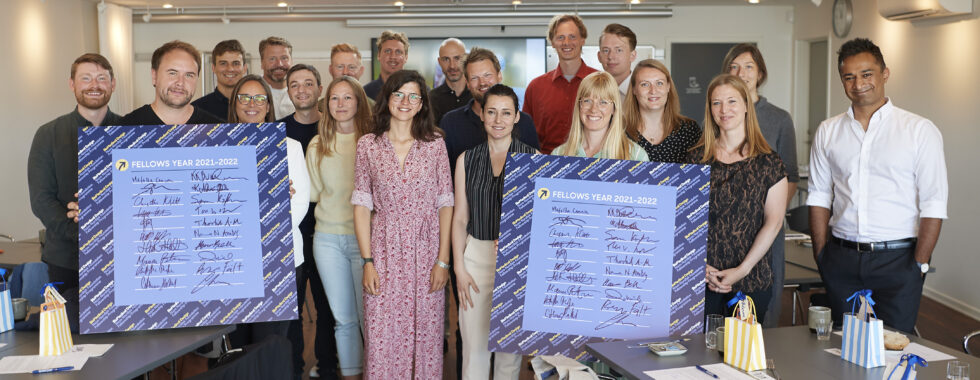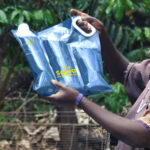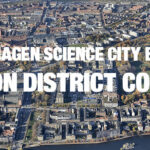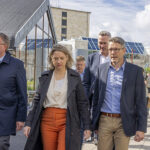Novel innovation and entrepreneurship-programme becomes launchpad for healthcare start-ups
After a great start, the Biomedical Design Fellowship Programme, funded by the Novo Nordisk Foundation and located in Copenhagen Science City, has launched 9 viable startup projects and expectations are high for the coming year.
By Katrine Lind Møgelgaard
Communication Consultant, BioMedical Design Novo Nordisk Foundation Fellowship Programme
A dream come true
The Biomedical Design Programme enrolls established professionals, teach them to scout for problems that need solving in the health and care sector, and gives alumni a set of innovation- and entrepreneurship tools so they can build new businesses based on the needs that they have discovered. BioMedical Design Programme has just kicked off its third year, and the leader of the programme is well pleased.
It’s exactly what I hoped for. My goal was to help at least two startups come to life each year. The results we look at now, by the end of our second year, shows that it’s possible to stimulate a lot more talent to become entrepreneurs through education and the right set up”, Sys Zoffmann Glud, managing director, Novo Nordisk Biomedical Design Programme.
What kind of startups
The nine new startups work on solutions within medtech, tele-health and health information technologies. From the class of 2019 the company NewOstomyLife has emerged. Their product is a disposable device to better handle ileostomy outputs to increase life quality for patients. Class of 2020 produced the start-up SundBesked where three teammates work within health information technology (SaaS). SundBesked invented a solution that can take and share visual information in a clinical setting in an easy, secure and legal way. Another start-up launched by the class of 2020 is Calces IO. Their clinical decision support tool is an automated screening of patients hospitalized for malnourishment to improve nutritional status and remove workload from healthcare staff.
Leave preconceived ideas behind
When entering the BioMedical Design programme, fellows not to bring ideas they might have thought out beforehand. Sys Zoffmann Glud explains:
“Our fellows enter the fellowship with a blank slate. They are not allowed to bring preconceived ideas into the programme. The fact that so many startup projects are established shows that BioMedical Design is a significant launch pad for people with an interest in entrepreneurship but who don’t have an idea and/or they don’t know how to go about it”.
To become an entrepreneur
That was the reality for nurse Niklas Kline Lange Frost. Today he is CEO of Calces IO that he runs with Antonio Limatola and Christine Winther, both fellow alumni from BioMedical Design.
He explains:
I didn’t have a business background and I didn’t see myself as an entrepreneur. But the last five-10 years I have wanted to develop things and ideas and I knew that in order to do that, entrepreneurship was essential for implementation and spreading the idea or concept”, Niklas Kline Lange Frost, CEO, Calces IO.
The least important part of a start-up
But what is the set-up needed to help people’s inner entrepreneur out in the open? Sys Zoffmann Glud has taken the initiative to create a fellowship programme that teaches people a needs driven approach to problem solving and a commercial approach to get the solution to market. She believes in a safe setting for people to get going with an interdisciplinary team and an open mind.
It’s amazing to see how our fellows set out with a blank slate and getting inspired along the way to do something about a problem they have observed. My point is that we must get away from the thought that a good idea is everything. To me, it’s actually the least important part of a startup”, Sys Zoffmann Glud, managing director, Novo Nordisk Biomedical Design Programme.
Access to clinics and labs
All fellows observe needs in the hospitals of all regions of Denmark, but even so the concentrated environment around hospitals and university faculties in Copenhagen Science City has been of great benefit for the validation process of the identified needs.




